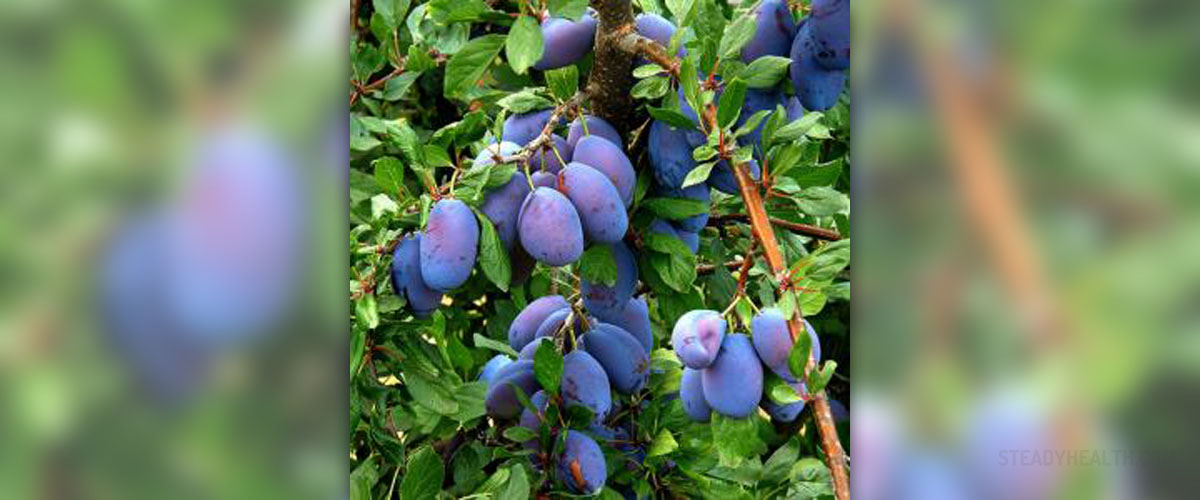
Prunes are dried fruit of any of plum species. They are also known as dried plums and in certain parts of the world, namely India, Pakistan and Bangladesh, they are known as alu-bukhara.
Prunes are well known of their sweet, deep taste and a sticky chewy texture. Prunes are frequently used in cooking both sweet and savory dishes, or as compote. These tasty dried fruits are also highly nutritious and often used as a natural laxative, to promote digestion and regular bowel movements. Chinese medicine practitioners believe that prunes make positive effects on acidity in the body. Prunes nutritional value
Prunes are a good source of vitamin A, dietary fiber, potassium and copper. One cup of dried prunes weighs about 174 grams, and contains approximately 418 calories. One such a portion can satisfy 50% of recommended daily intake for dietary fiber. It contains as much as 129% of recommended daily allowance (RDA) for vitamin K, 27% of RDA for vitamin A, 36% of RDA for potassium, 26% of RDA for manganese and 24% of RDA for copper. A large portion of the calories in this food comes from sugars, which count for 66 grams in one portion.
Health benefits of prunes
Perhaps the best known healthy feature of prunes is their ability to prevent constipation. Moreover, prunes may lower the risk of colon cancer and hemorrhoids.
The most beneficial compounds in prunes unique phytonutrients called neochlorogenic and chlorogenic acid. These substances are classified as phenols, powerful antioxidants able to neutralize hazardous oxygen radical called superoxide anion radical. Phenols are also able to prevent oxygen-based damage to fats, thus protecting cell membranes, brain cells and molecules.
As a great source of vitamin A, prunes eliminate free radicals that would otherwise cause a lot of damage to living cells and cell membranes. A. Beta-carotene acts as a fat-soluble antioxidant able to deter oxygen-related damage. This property is beneficial in prevention of a variety of diseases, including atherosclerosis, diabetic heart disease, and colon cancer. Beta-carotene may also reduce the inflammation in conditions such as asthma, osteoarthritis and rheumatoid arthritis.
High levels of potassium are beneficial s mineral in a quarter-cup. Potassium is an essential mineral for maintaining normal blood pressure, and heart function. Potassium may also help prevent atherosclerosis.
As excellent sources of dietary fiber, prunes help to normalize blood sugar levels and to help a person lose weight. Dietary fiber may delay the absorption of glucose and thus prevent rapid drops in blood sugar levels. Moreover, dietary fibers promote a feeling of fullness after a meal, thus preventing overeating and food cravings.
Recent studies conducted on postmenopausal women showed a 34% reduction in breast cancer risk for those consuming the most fruit fiber compared to those consuming the least. The study suggests that prunes may be protective against postmenopausal breast cancer.



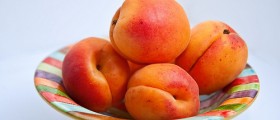
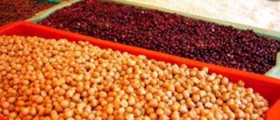
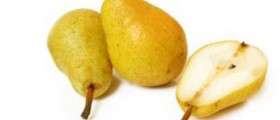
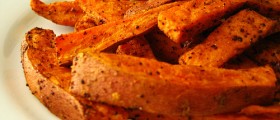
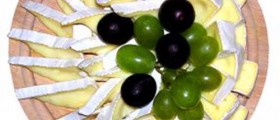
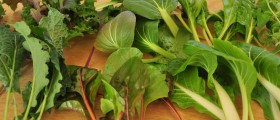
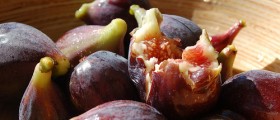
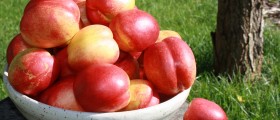

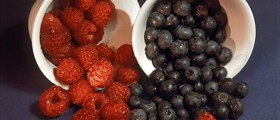




Your thoughts on this
Loading...